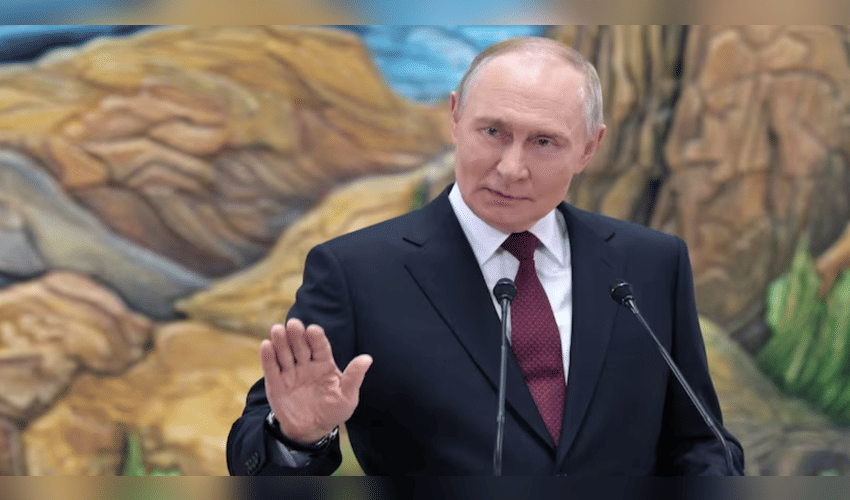World
Putin Calls Zelensky's Leadership Illegitimate, Rejects Peace Deal Possibility

Russian President Vladimir Putin has publicly dismissed Ukrainian President Volodymyr Zelensky's leadership as illegitimate, stating that any peace deal involving his government would be pointless. Putin made these remarks after a regional summit in Kyrgyzstan, where he highlighted that Zelensky's presidential term expired without fresh elections—a situation Ukraine justifies due to martial law amid ongoing conflict. According to Putin, this lack of legitimacy undermines the very foundation of peace negotiations with Kyiv.
Putin emphasized that Russia's insistence on Ukrainian forces withdrawing from the territories of Donetsk, Luhansk, Kherson, and Zaporizhia is non-negotiable. He claimed that if Kyiv complies, Russian military operations will cease, otherwise, Russia will continue its campaign to secure these regions by force. These demands reflect Moscow’s broader territorial ambitions, covering not just lands currently under Russian control but also areas still contested, which Kyiv staunchly denies. Furthermore, Putin reiterated his opposition to Ukraine joining NATO or hosting Western military forces, insisting these remain red lines.
Despite his strong stance against Zelensky's government, Putin expressed a cautious willingness to consider a recently revised U.S. peace proposal. This plan, now condensed to roughly 20 points, was discussed in Geneva and seen by Kremlin officials as a possible basis for negotiations. Putin welcomed an upcoming visit by U.S. envoy Steve Witkoff to Moscow for further dialogue. This openness comes alongside Russia’s ongoing military advances, which include reported encirclements in eastern Ukraine—a fact contested by Ukrainian forces.
Putin’s declarations highlight the deep political and military deadlock defining the Russia-Ukraine conflict. While Moscow insists on territorial concessions and de-legitimizes Kyiv's leadership, Ukraine and its allies demand full Russian withdrawal and reject any territorial giveaways. This standoff, fueled by questions of legitimacy and sovereignty, continues to stall diplomatic efforts, even as the international community watches closely. Putin’s comments not only underscore his government’s hardline posture but also raise doubts about the near-term prospects for a peaceful resolution to Europe’s most prolonged war since World War II.



